wird zur
Weltlandbrücke
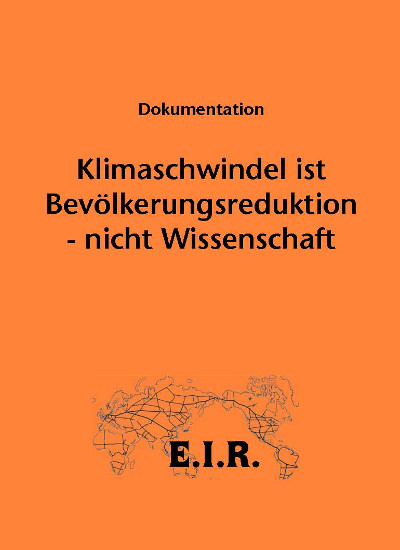
Klimaschwindel ist Bevölkerungsreduktion
– nicht Wissenschaft
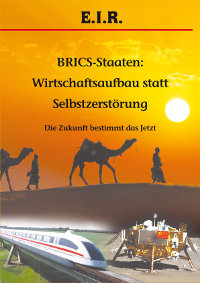
BRICS-Staaten: Wirtschaftsaufbau
statt Selbstzerstörung
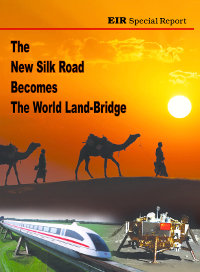
The New Silk Road Becomes The
World Land-Bridge
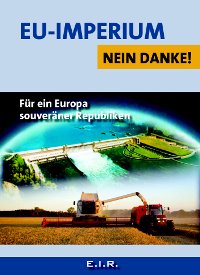
EU-Imperium Nein Danke! Für ein Europa souveräner Republiken
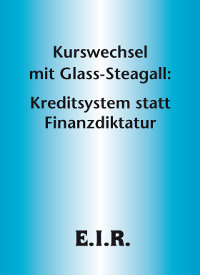
Kurswechsel mit Glass-Steagall: Kreditsystem statt Finanzdiktatur
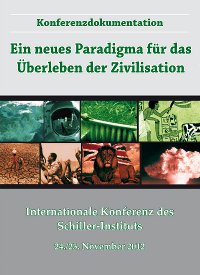
Ein neues Paradigma
für das Überleben
der Zivilisation
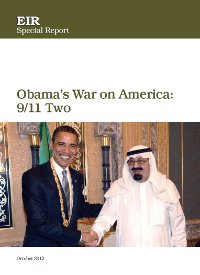
Obama's War on America: 9/11 Two
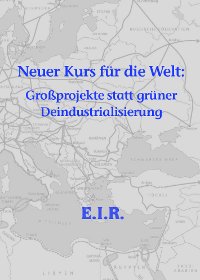
Neuer Kurs für die Welt:
Großprojekte statt grüner Deindustrialisierung
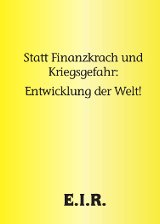
Statt Finanzkrach
und Kriegsgefahr:
Entwicklung der Welt!
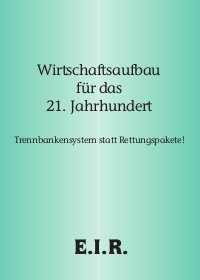
Wirtschaftsaufbau für
das 21. Jahrhundert - Trennbankensystem
statt Rettungspakete!
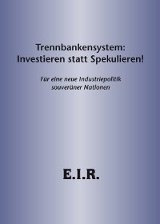
Trennbankensystem:
Investieren statt Spekulieren! Für eine neue Industriepolitik souveräner Nationen
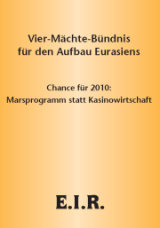
Vier-Mächte-Bündnis für den Aufbau Eurasiens - Chance für 2010: Marsprogramm statt Kasinowirtschaft
Mit Leseprobe:
Vorwort von Helga Zepp-LaRouche
und Es tut sich was in Asien von Lyndon LaRouche
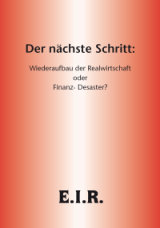
Der nächste Schritt: Wiederaufbau der Realwirtschaft
oder
A feisty audience came together on Sept. 30 in Frankfurt for a seminar on the theme: "A Centennial Program to rebuild the world economy: NAWAPA -- Bering Strait Tunnel – Eurasian Land-bridge." In addition to diplomats from Africa and Asia, there were a number of top nuclear engineers involved in the former High Temperature Reactor (HTR) project, which was later shut down in Germany, as well as many concerned citizens. During the course of the evening, the potential for creating a powerful alliance among those sectors of the German elite, who are prepared to defend the crucial technological and scientific potential of their country against the ongoing Jacobin onslaught, became clear.
The event was opened by the Chairwoman of the Schiller Institute, Helga Zepp-LaRouche, who gave an international strategic briefing on the fight in the United States to reinstate a Glass- Steagall standard and the urgency of great projects worldwide including those mentioned above and the replenishment of Lake Chad and the Aral Sea, which are needed to build up the world economy and lay the basis, by so doing, for conquering space. Zepp-LaRouche also went into the current assault on German technology and infrastructure by an infamous alliance of British run hedge funds, foundations such as the European Climate Foundation and the crazed mobs deployed on the streets of Germany. She called for an alliance for progress and development of all forces concerned. "Since it is demonstrated that the nature of the universe is anti-entropic, we should put politics in harmony which the laws of the universe," she concluded.
Dr. Urban Cleve, a top nuclear engineer, now retired, who had been instrumental in the German HTR program along with its inventor Professor Rudolf Schulten, spoke on the technical aspects and future uses of the reactor. He was especially happy to present this in the context of great projects worldwide, especially NAWAPA, he said, acknowledging the huge significance and gigantic of such an undertaking. Dr. Cleve castigated the new energy "compromise" of the German government, as well as the lack of basic scientific education of people such as former German Environmental Minister Sigmar Gabriel.
As a young engineer, he said, he was thrilled to be able to take part in developing the new reactor concept, and “I am still excited over it today.” Prof. Schulten's reasoning and observations were valid then, and still are today, sixty years later. He stressed several times that the HTR project was shut down for political reasons, and political reasons alone, at the end of the 1990s, and that just at the time when Germany had the leading position worldwide in that technology. “In the 22 years that the test reactor ran, not one single unsolvable problem came up, and not one significant technical improvement was needed.”
During and after Dr. Cleve's speech, several of his colleagues intervened to highlight who was responsible for sabotaging the project, on the importance of light water reactors, etc. Unfortunately, the very lively discussion had to be stopped, for time reasons, but those involved are quite willing to bring their knowledge of these issues to bear. Certainly, the voices of competent scientists would bring a welcome element into the debate.
The next panel heard the General Consul of Ethiopia, Mulugeta Zewdi Michael, who presented “Water and Dam Projects for Ethiopia's Future”. He focussed on the large water control and energy project called "GIBE 3", which his government is just now building. The project, which involves a large dam on the river Omo, will double current electricity production in Ethiopia, covering the entire national demand, plus a good amount to be exported to Kenya.
Ethiopia's potential for hydroelectric power is 45 GW, of which only 2 GW are currently exploited, pending completion of the GIBE 3 dam, which will provide 2 GW more. At the same time, it will provide water for irrigation and a system for controlling ebbs and flows, thus putting an end to cycles of floodings and droughts. Despite the enormous benefits, environmentalist organizations, led by Rivers International and Survival International, have launched an international campaign against the project. "We know who finances those groups", Mr. Zewdi said.
As an example of outright lies being spread on international media, he showed an article published in the Frankfurter Rundschau of September 3, 2010, which claimed that the GIBE 3 project will endanger the life of hundred of thousands of Ethiopians and create hunger. Exactly the opposite is true, Mr. Zewdi demonstrated.
After this very moving presentation, Claudio Celani of EIR presented an overview of the extended Transaqua program, for the creation of a productive platform in central Africa, based on water-transfer and transport infrastructure from the Congo Basin to Lake Chad. This idea would reverse the process of desertifation of the Sahel, refilling Lake Chad and restarting an anti-entropic cycle of rainfall. Celani brought the greetings of the author of Transaqua, Dr. Marcello Vichi from Italy, and summarized the speech which he had sent to the Frankfurt and Berlin conferences.
The Transaqua idea was developed in the seventies, when the Italian government, through State-owned firms such as Vichi's Bonifica, was still pursuing the development policy inaugurated by Enrico Mattei, the founder of the Italian national oil company ENI. After describing the main features of Transaqua, Celani reported that the project was rejected in 1994 by Central African countries, in favor of a smaller water-transfer plan the feasibility of which is to be discussed at a meeting in Chad next October 29-30. It is questionable whether the smaller plan, which is improperly called Transaqua, would ever work. This short-sighted decision was most probably influenced by the destabilization of Congo, which had just started, and which – as EIR has documented – was run by London.